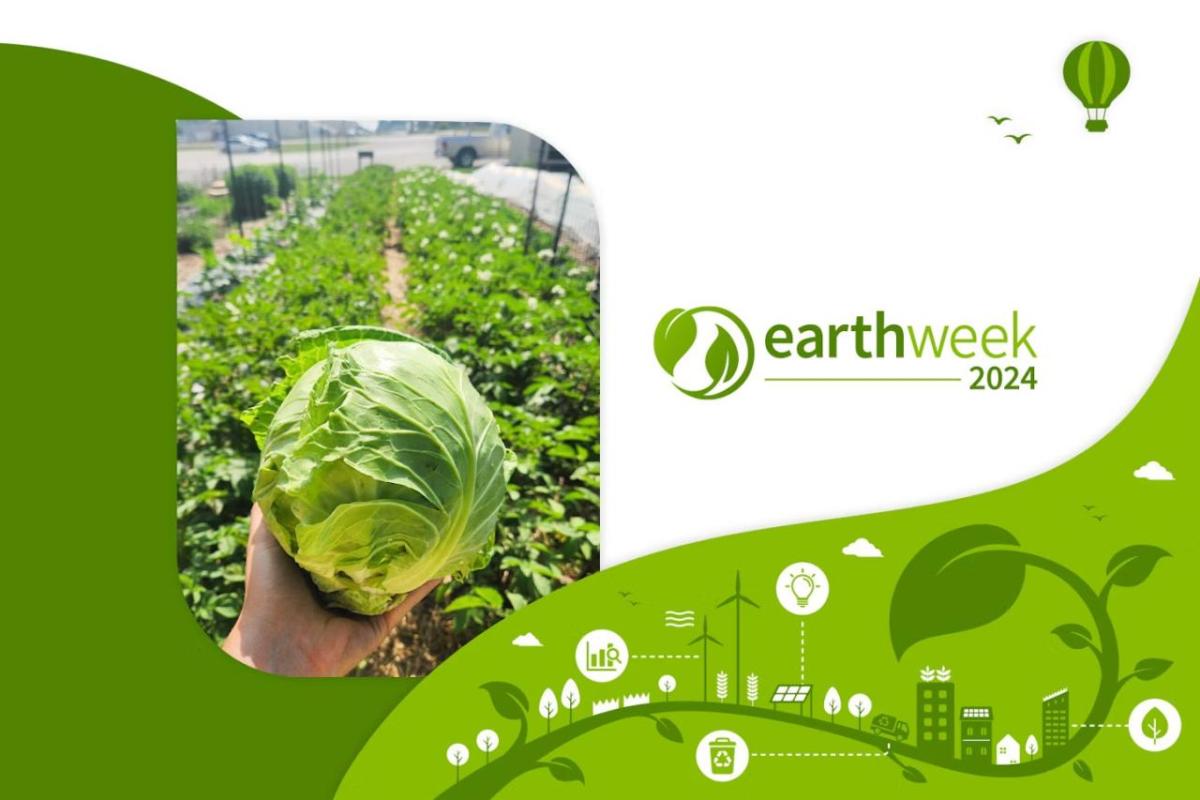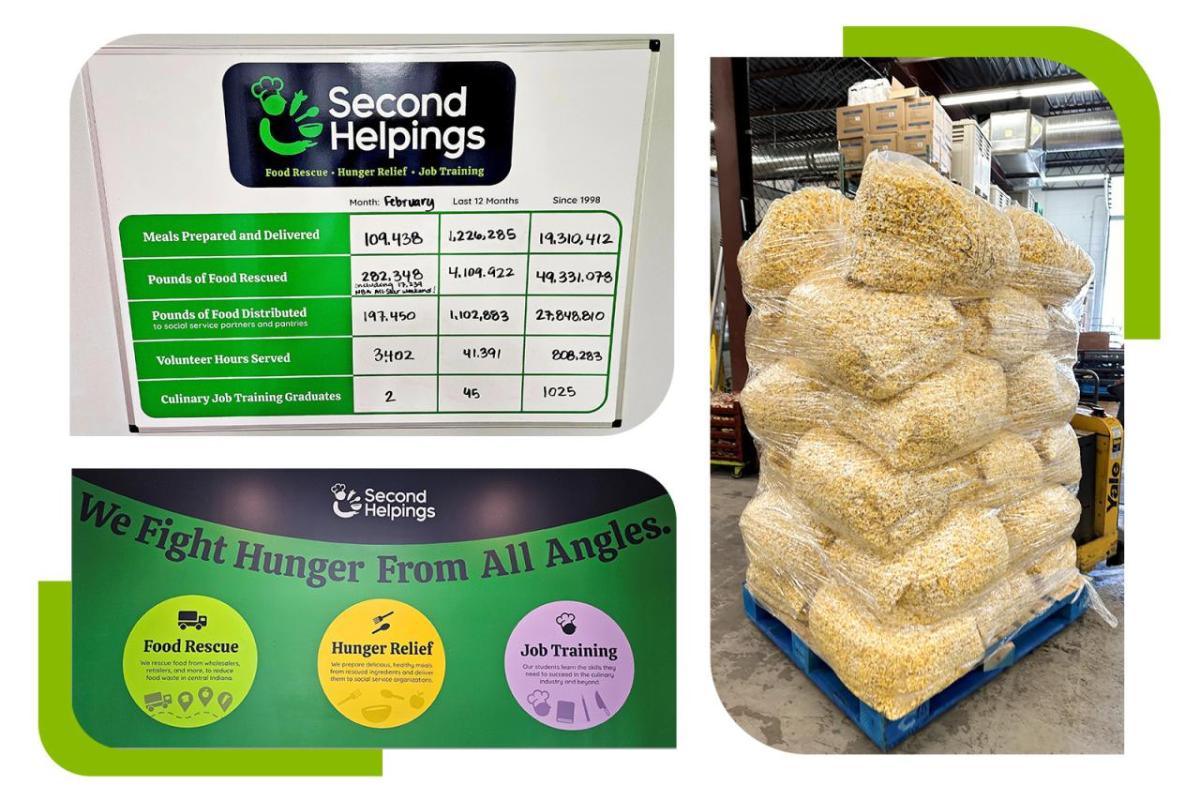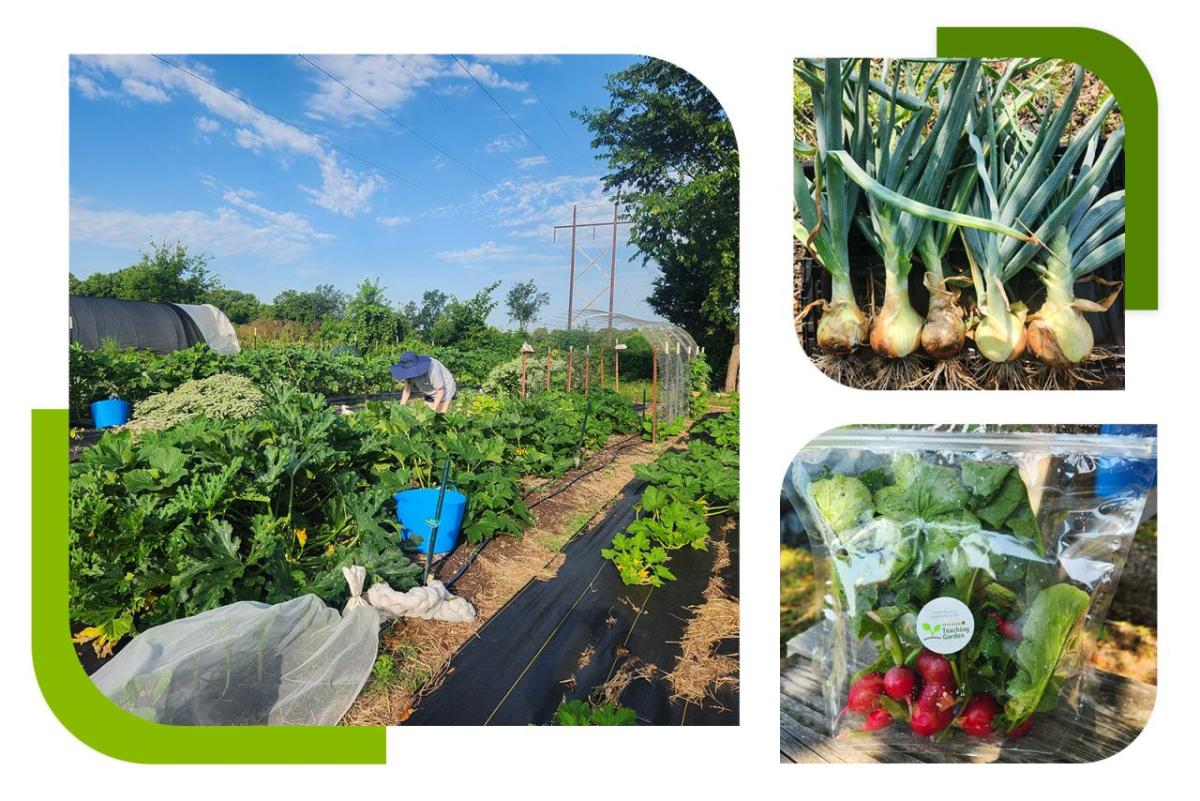Rescue Mission
Discover the innovative ways two nonprofits are addressing hunger relief and reducing food waste.
By Kim Borges
In recognition of Earth Day, Regions is sharing a series of articles that highlight how teams and associates across the bank are contributing to our commitment to operate in environmentally sound ways that make life better for all.
The numbers are staggering.
Feeding America estimates more than 44 million Americans are considered food insecure, meaning they don’t have enough to eat and don’t know the source of their next meal; at the same time, 80 million tons of wasted food goes into landfills annually.
Unconsumed food equates to more than missed opportunities to nourish those who are hungry. It also generates significant carbon dioxide emissions from food handling, production and transportation plus methane emissions as it breaks down in landfills.
But there are solutions. Consider the work of two Regions Bank community partners that are doing their part to feed neighbors in need and promote sustainability and efficiency. We’re highlighting their efforts here during Earth Week.
Indianapolis: Second Helpings Scores a Slam Dunk in Reducing Food Waste
The team at Second Helpings has shown they can put on a clinic about how to rescue tens of thousands of pounds of food from large-scale sporting events. So, when the National Basketball Association hosted its 2024 All-Star weekend in Indy in February, the league knew exactly who to turn to for an assist as its food rescue partner.
Since its 1998 founding, Second Helpings, a longtime Regions Bank community partner, has rescued more than 50 million pounds of food that would have otherwise gone into landfills. The Regions Foundation, a nonprofit funded primarily by Regions Bank, has also supported Second Helpings’ Culinary Job Training program, which uses that same rescued food to help train adults facing barriers to gain employment as cooks, executive chefs, restaurateurs and more.
Second Helpings’ NBA All-Star rescue netted 17,239 pounds of food toward those goals.
“We received a large mixture of raw, bulk produce, as well as salads, sandwiches, barbeque and various proteins,” said Jon Meinert, Second Helpings’ Food Rescue and Transportation director. “We were able to distribute all the individually packaged, prepared items within 24 hours, with the majority sent directly to our agency partners. Most of the other items were processed and utilized by our Hunger Relief team in our own meal preparation.”
And what would a sporting event be without snacks?
“We received three large pallets of popcorn from the stadium,” Meinert added. “It was a huge hit with our Boys and Girls Club and parks partners, and our warehouse smelled phenomenal!”
There are many highlights to working on sustainable food rescue from large-scale events. My favorite is knowing the harder we push and more food we can capture equates to a larger community impact.
Jon Meinert, Second Helpings’ Food Rescue and Transportation director
While Second Helpings arrives post-game for pick up, they sometimes face logistical factors requiring Meinert and team to pivot.
“Like for most attendees, one of the hardest parts is accessing the venues,” he explained. “Working through street closures and taking alternate routes is always a challenge that must be addressed with patience and a smile.”
Meinert is continually scouting the next big opportunity.
“We’re looking forward to racing season, concerts, plus all the great conventions we’re fortunate to host in our amazing city,” he said. “There are many highlights to working on sustainable food rescue from large-scale events. My favorite is knowing the harder we push and more food we can capture equates to a larger community impact.”
Northwest Arkansas: How Does Your Garden Grow?
Northwest Arkansas Food Bank, a Feeding America affiliate, distributed 14 million pounds of food across its four-county service area in 2023 alone. That’s impressive, but you haven’t seen anything yet given the organization’s expansion, which includes moving into a new building in June. The team is also growing its outdoor service capabilities.
Our goal is to yield 20,000 pounds of produce annually, resulting in over 300% more fruits and vegetables to share with our neighbors.
Casey Cowan, director of Client Services
“We currently have a quarter-acre garden, and we plan to expand to a full acre by 2027, with room for three acres,” said Casey Cowan, director of Client Services. “Our goal is to yield 20,000 pounds of produce annually, resulting in over 300% more fruits and vegetables to share with our neighbors.”
But wait, there’s more.
“We’re transferring our current six-by-14-foot greenhouse to our teaching garden and will purchase a 24-by-48-foot greenhouse to assist with our seed starts and planting for the new garden,” added Haley Deatherage, Gardening and Nutrition manager.
Getting fresh produce into their neighbors’ hands and homes has been a priority for years.
“We have a recipe of the month program with our agency partners,” Deatherage said. “I highlight fresh fruits and vegetables, especially those people may not typically cook. We also do sampling events at our Feed Rogers food pantry to let people try new things and provide recipes and ingredients.”
Jaclyn Henderson, Commercial Banking leader and local market executive for Regions Bank, notes the nonprofit is an anchor people, families and even fellow agencies rely on.
“The Northwest Arkansas Food Bank has intentionally and compassionately served our neighbors facing food insecurity for more than 35 years,” said Henderson. “When the community has faced its greatest challenges, their team has uncovered innovative ways to leverage additional resources to help. They’re now enlisting that same approach in expanding their own space and service capacity.”
That creativity has also contributed to being ahead of the conversation curve.
“We use drip irrigation, meaning we only water as much as needed,” explained Deatherage. “We also use no-till gardening to promote soil support and reduce greenhouse gasses and promote native pollinators with our perennial plants.”
The organization’s new teaching garden is blazing trails in another important area as well.
We’re creating an inclusive learning environment by building a garden that’s fully handicap accessible. It will have Americans with Disabilities Act-compliant walkways and accessible, raised beds specially designed to offer wheelchair access.
Haley Deatherage, Northwest Arkansas Food Bank Gardening and Nutrition manager
“We’re creating an inclusive learning environment by building a garden that’s fully handicap accessible,” said Deatherage. “It will have Americans with Disabilities Act-compliant walkways and accessible, raised beds specially designed to offer wheelchair access.”
Amid the growth and change, the mission remains constant.
“We work with families trying to make ends meet,” said Cowan. “There isn’t one specific type of person who comes to our food pantry, but what they share is being trapped in the cycle of food insecurity. Our goal is to disrupt and end that cycle.”
About Regions Foundation
Regions Foundation supports community investments that positively impact the communities served by Regions Bank. The Foundation engages in a grantmaking program focused on priorities including economic and community development; education and workforce readiness; and financial wellness. The Foundation is a nonprofit 501(c)(3) corporation funded primarily through contributions from Regions Bank.




